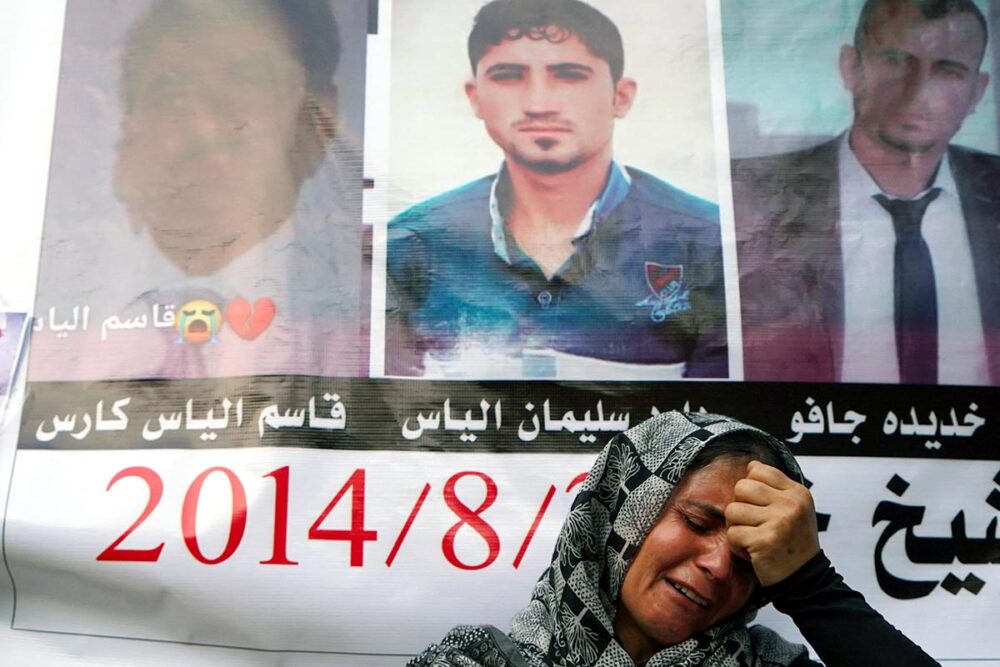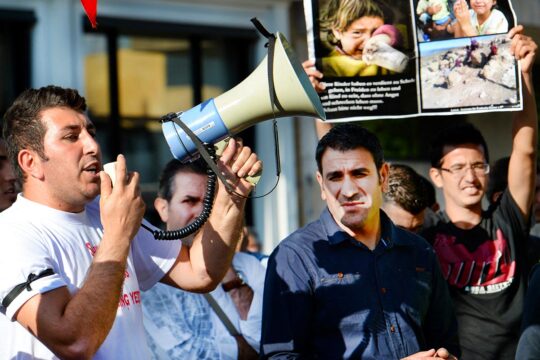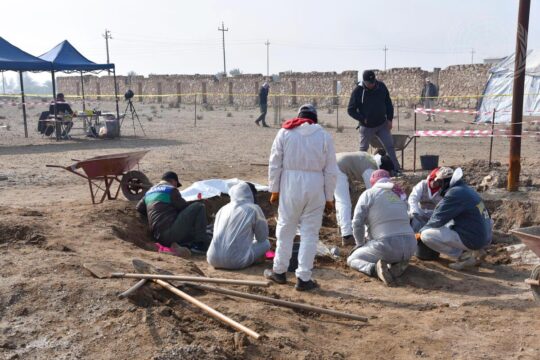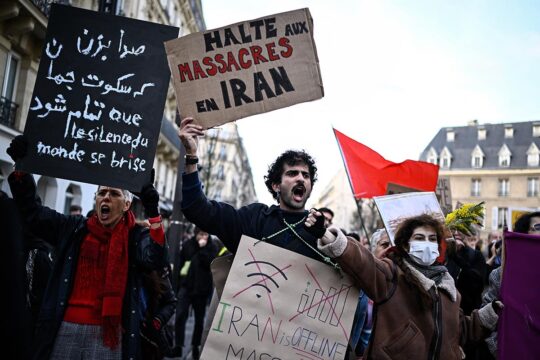To listen to the podcast, click on the "play" button below:
This year marks ten years since the Yazidi genocide, where Islamic State fighters killed, raped and enslaved thousands of Yazidis after seizing parts of Iraq and Syria in 2014.
In the early hours of August 3rd 2014 IS militants launched a coordinated attack and forcibly took over the Sinjar region in northern Iraq, home to the Yazidi people.
In the days and weeks that followed, approximately 12,000 Yazidis were killed or abducted by IS, according to the NGO organisation Yazda and the United Nations. Around 7,000 women and girls were kidnapped, enslaved, usually as sex slaves. Boys were forced to become child soldiers and it is thought five thousand, mostly men were massacred.
An estimated further 250,000 people were displaced and forced to flee to Mount Sinjar, cut off from food, water and medical treatment for days before coalition forces found safe passage for them to Syria.
The exact number of people killed and abducted is unknown and mass graves are still being discovered.
This week we speak to Natia Navrouzov, just appointed Executive Director at Yazda, an NGO representing Yazidis in the efforts at finding legal accountability. We discuss what accountability has been possible in the ten years since the atrocity. The impact and reach of UNITAD, the United Nation’s body to hold Islamic State accountable for their crimes and the possibility of setting up a court to prosecute these international war crimes in Iraq.
 ASYMMETRICAL HAIRCUTS
ASYMMETRICAL HAIRCUTS
This podcast has been published as part of a partnership between JusticeInfo.net and Asymmetrical Haircuts, a podcast on international justice produced from The Hague by journalists Janet Anderson and Stephanie van den Berg, who retain full control and independence over the contents of the podcast.







